Blogs
Scuba Diving: How to Get Started
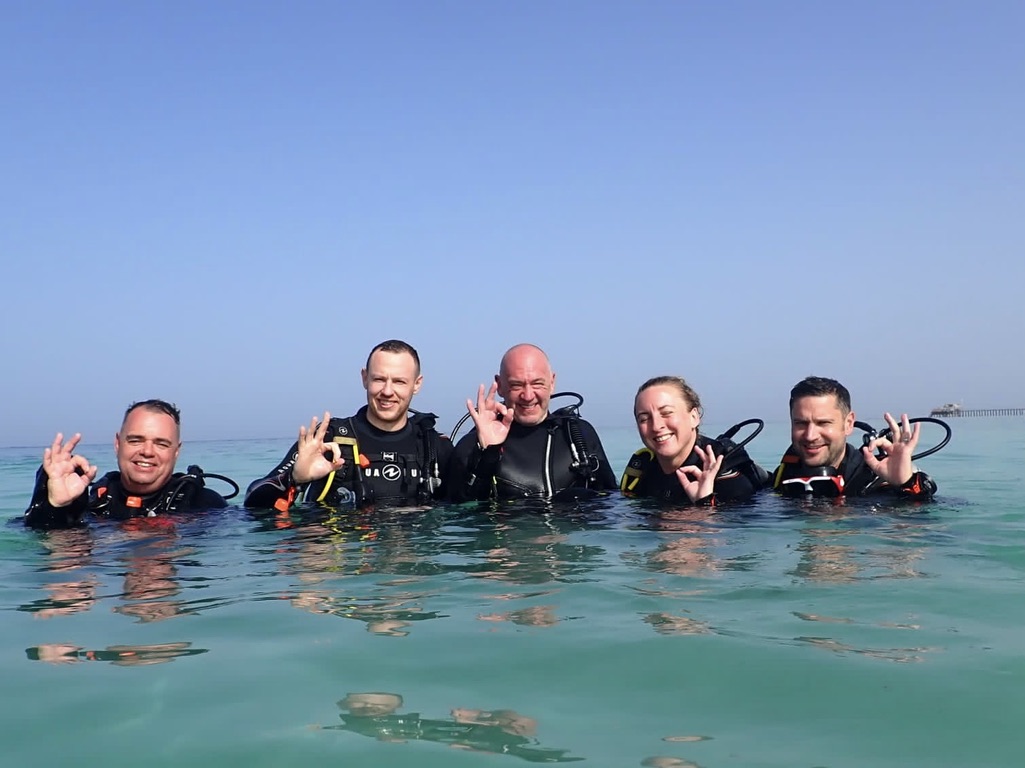
If you have a friend or family member who is thinking about getting in to diving, this guide on how to get started from Sea to Sky offers advice on how they can begin their exciting journey…
Scuba diving is a wonderful way to experience the beauty and diversity of marine life, and to explore shipwrecks, caves, and other underwater features across the world.
For many scuba diving becomes a hobby & passion, but it’s also hugely popular for holidays to destinations such as Egypt, Oman, Indonesia, Thailand, Philippines and the Maldives, offering an unparalleled underwater experience for new and experienced divers.
Find out more about Scuba Diving in our getting started guide.
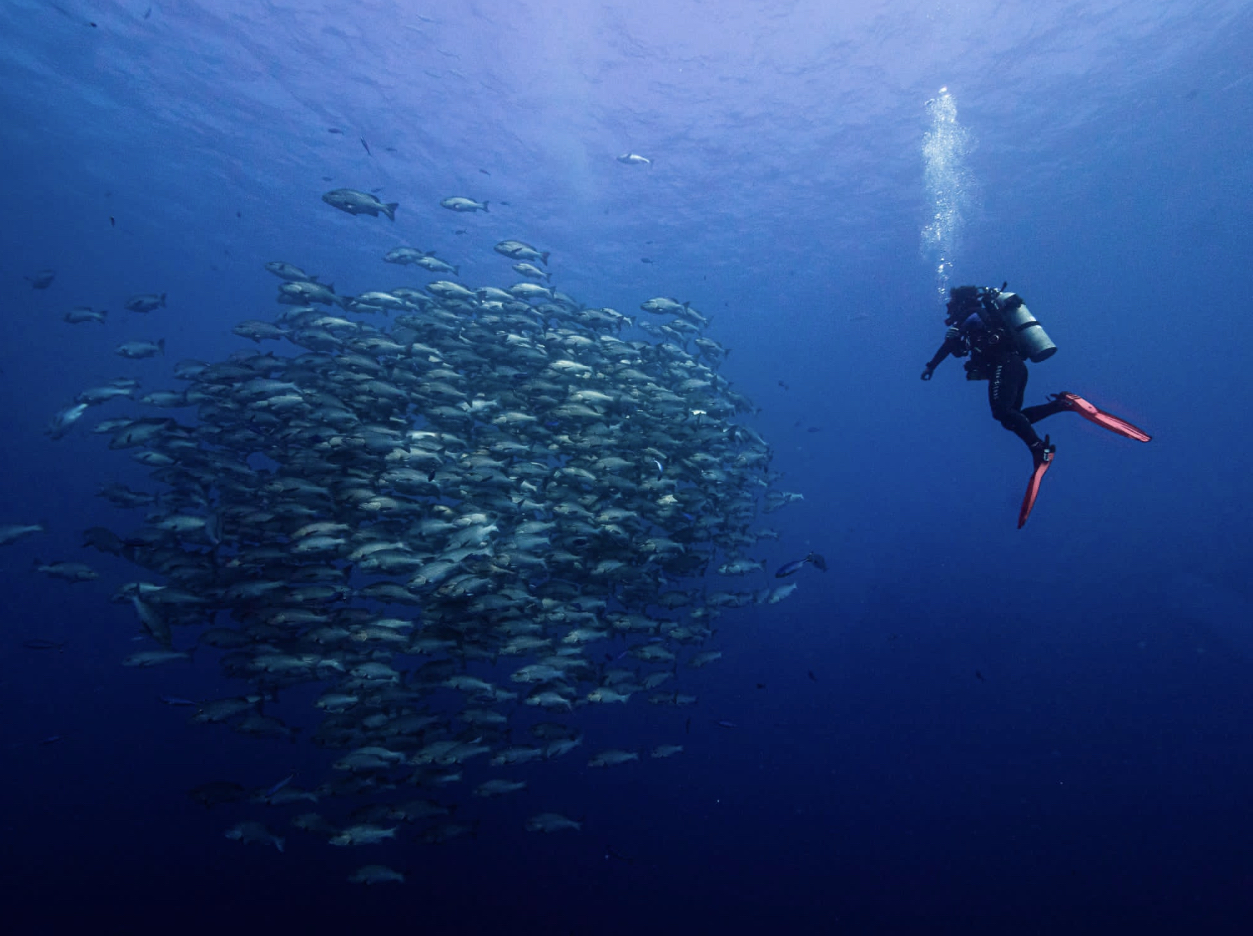
What is Scuba Diving
Scuba diving is where divers use a self-contained underwater breathing apparatus (SCUBA) to breathe underwater.
Essential Training
Before going scuba diving, it is important to get proper training and certification. This will ensure that you are able to dive safely and understand the risks involved.
There are various organisations that offer scuba diving certification, such as PADI, CMAS, and SSI (among others). These organisations offer a variety of courses, from basic open water diver courses to advanced specialty courses such as deep diving, wreck diving and tech.
Important Equipment
When scuba diving, it is important to use proper equipment and to follow safety guidelines. This includes using a dive computer, which helps to monitor your dive time and depth, as well as a dive watch or dive planner.
It is also important to use a buoyancy control device (BCD) to help control your buoyancy underwater, and a dive regulator to control the flow of air from your tanks.
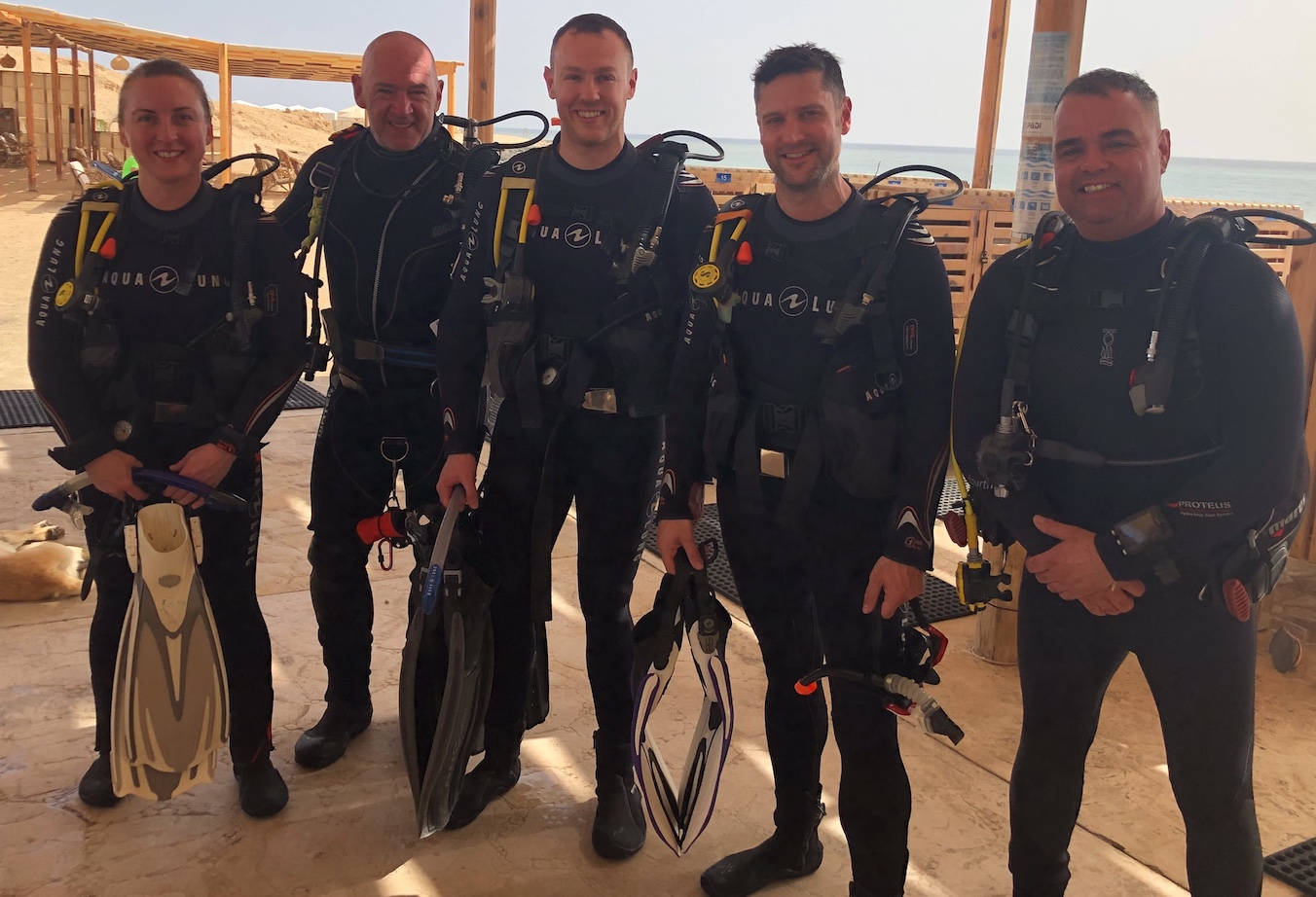
Be Sensible
Scuba diving is a great way to explore the underwater world, but it is also important to remember that it is an activity that comes with risks.
Divers should be aware of their own limitations and should always dive within their own level of experience and training. It is also important to be aware of the potential dangers of diving, such as marine life, currents, and equipment failure.
Overall, scuba diving is a thrilling and rewarding activity that allows people to experience the beauty and diversity of the underwater world. With proper training and safety guidelines, it is a safe and enjoyable activity for people of all ages and abilities.
Dive Training Agencies
Each agency offers different courses and certifications, and each has its own unique approach to scuba diving education.
Below are three of the major agencies and we have summarised the agencies and what they offer. If you are any doubt or confused, drop us an email and we would be only too happy to discuss each of their attributes.
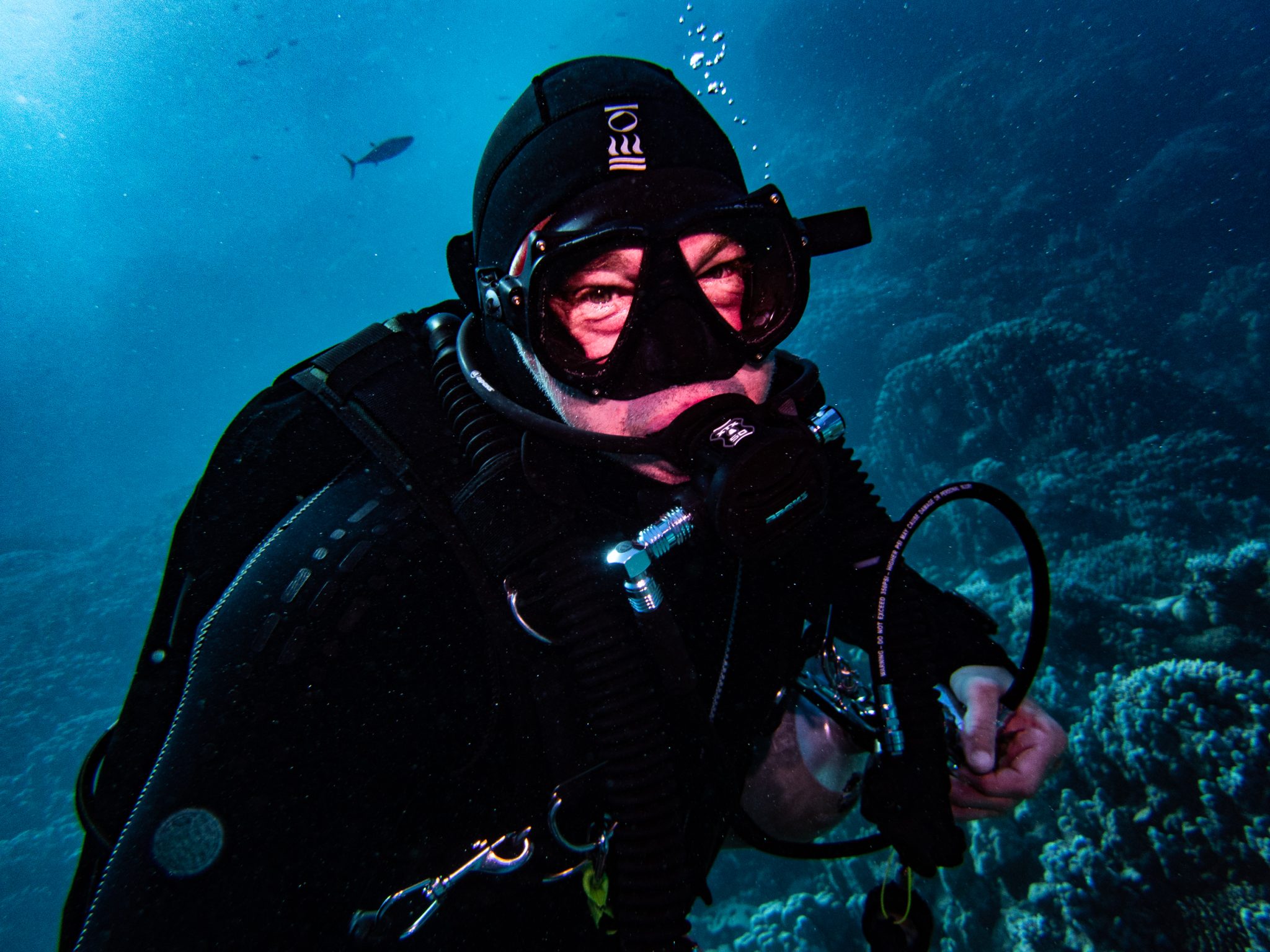
PADI
PADI, which stands for Professional Association of Diving Instructors, is one of the most well-known and widely recognised scuba diving certification agencies in the world.
Founded in 1966, PADI has trained millions of divers and currently has more than 6,500 dive centres and resorts in over 180 countries.
One of the reasons for PADI’s popularity is its wide range of courses for divers of all levels, from beginner to professional.
The most popular PADI course is the Open Water Diver course, which teaches the basic skills and knowledge needed to safely dive in open water environments.
PADI also offers a variety of specialty courses, such as deep diving, wreck diving, and digital underwater photography, that allow divers to expand their skills and knowledge.
It also offers different types of certifications, such as the Junior Open Water Diver, which is designed for children, and the Master Scuba Diver, which is the highest non-professional certification level in PADI and recognises the diver’s experience and skills.
Another aspect that sets PADI apart from other dive agencies is the flexibility of its courses, PADI’s eLearning program allows divers to complete the knowledge development part of the Open Water Diver course online, before arriving at the dive center. This allows divers to learn at their own pace and to fit the course into their busy schedules.
PADI is also known for its commitment to safety and environmental conservation. The agency has developed a number of programs and initiatives to promote safe diving practices and to protect the underwater environment. These include Project AWARE, which focuses on ocean conservation and marine debris removal, and the PADI Diver Propulsion Vehicle (DPV) Specialty course, which teaches divers how to safely and responsibly use underwater scooters.
In conclusion, PADI is one of the most well-known and widely recognised scuba diving certification agencies in the world. With its wide range of courses, flexible eLearning program, and commitment to safety and environmental conservation, PADI is an excellent choice for anyone looking to learn to dive or to expand their diving skills and knowledge.
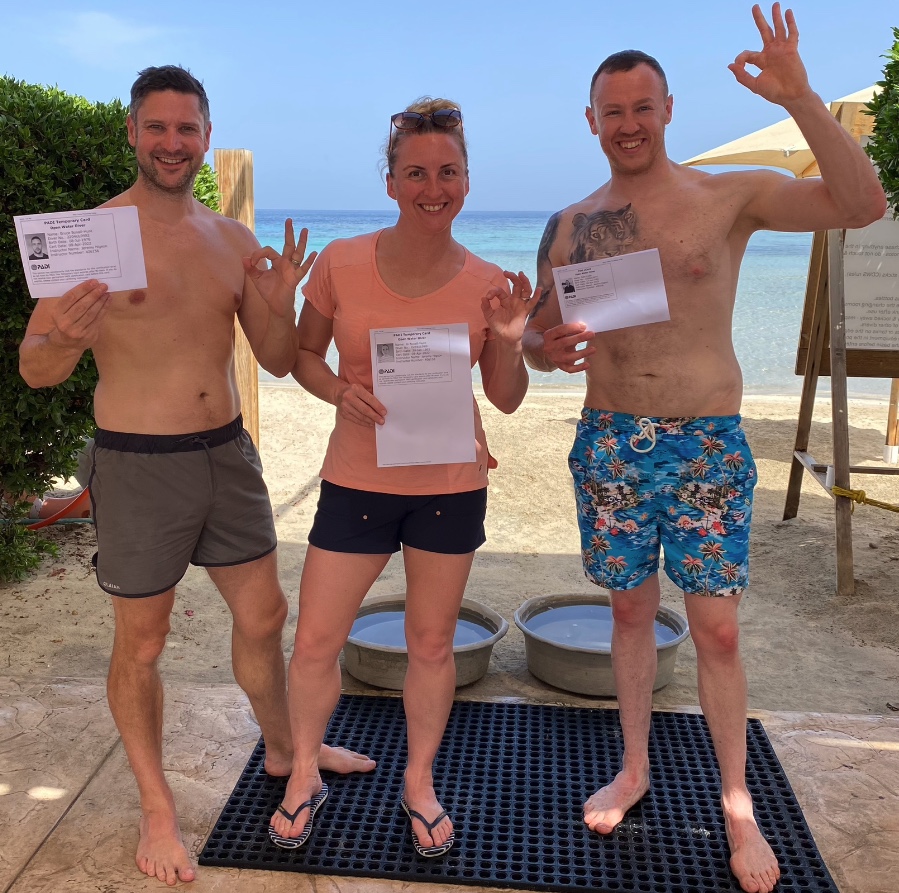
CMAS
CMAS, short for Confédération Mondiale des Activités Subaquatiques, is a French dive agency that offers scuba diving certifications and training.
Founded in 1959, CMAS is one of the oldest and most respected dive agencies in the world, and is recognised by the World Recreational Scuba Training Council (WRSTC) as a major training organisation.
One of the unique features of CMAS is its multi-level certification system. Unlike other dive agencies, which have a single level of certification for open water divers, CMAS has three levels of certification for open water divers: 1-star, 2-star, and 3-star. Each level represents an increasing level of skill and knowledge, and divers can progress through the levels as they gain more experience.
- The 1-star level is the entry-level certification for open water divers. It is designed for divers who are new to scuba diving and want to learn the basics of diving, such as dive theory, dive equipment, dive planning, and dive safety.
- The 2-star level is the intermediate level certification for open water divers. It is designed for divers who have completed the 1-star level and want to gain more experience and knowledge. The 2-star level covers more advanced topics such as deep diving, navigation, and emergency procedures.
- The 3-star level is the advanced level certification for open water divers. It is designed for divers who have completed the 2-star level and want to gain even more experience and knowledge. The 3-star level covers more specialised topics such as wreck diving, cave diving, and ice diving.
In addition to its open water diver certifications, CMAS also offers a wide range of specialties and instructor certifications. These include deep diving, wreck diving, cave diving, night diving, and more. CMAS also offers technical diving courses, including trimix and rebreather diving.
CMAS is also known for its strong emphasis on safety and environmental conservation. All the diving courses include instruction in dive safety and environmental awareness, and they are actively involved in ocean conservation and marine research projects around the world.
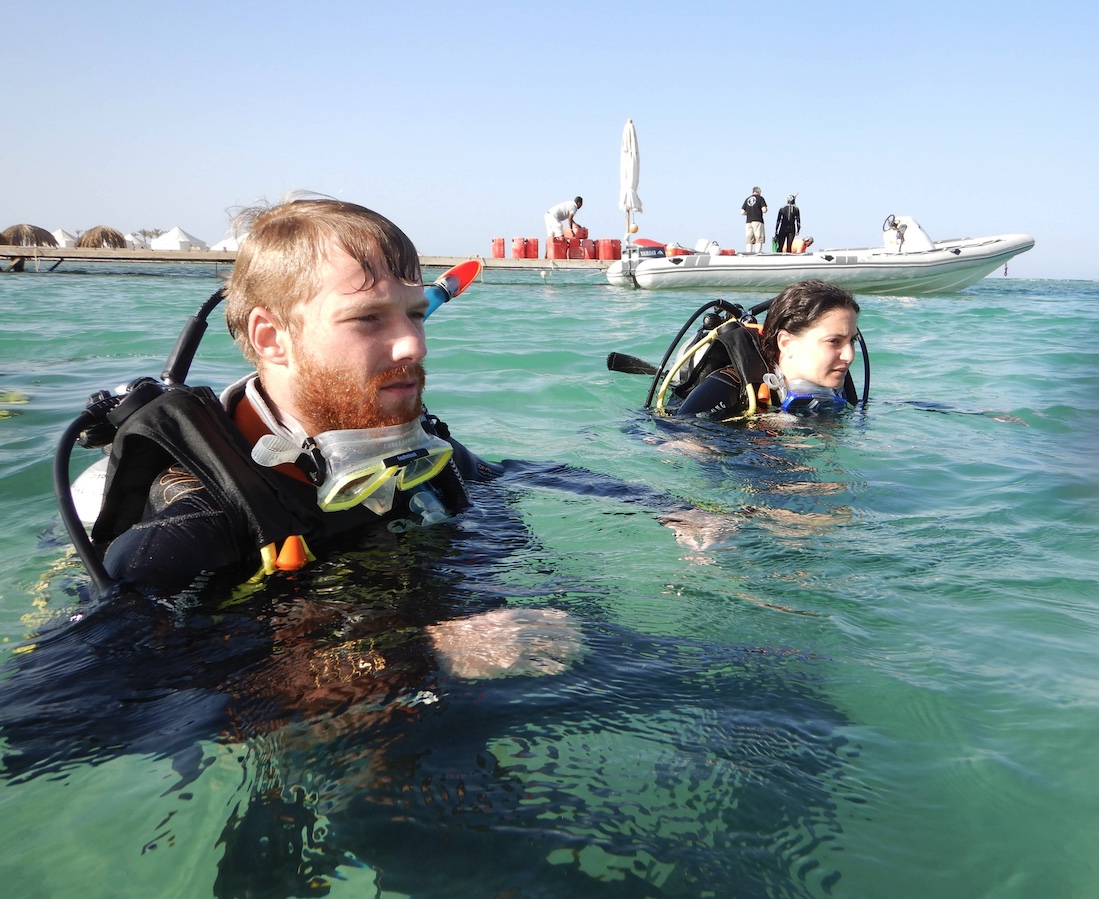
SSI
Scuba Schools International (SSI) is a globally recognised scuba diving certification agency that offers a wide range of scuba diving courses and certifications.
Founded in 1970, SSI has trained millions of divers and currently has more than 40,000 dive professionals and over 2,500 dive centres and resorts worldwide.
One of the unique features of SSI is its focus on providing a comprehensive and holistic dive education program. SSI has a unique training system that is based on the concept of “Total Dive Control”. This means that SSI courses are designed to teach divers not only the basic skills of diving, but also how to fully control and manage their dive experience, from planning and preparation to execution and analysis.
SSI also offers a variety of courses for divers of all levels, from beginner to professional. The most popular SSI course is the Open Water Diver course, which teaches the basic skills and knowledge needed to safely dive in open water environments.
There are also a variety of specialty courses, such as deep diving, wreck diving, and digital underwater photography, that allow divers to expand their skills and knowledge.
SSI also offers a Master Diver program, which is the highest non-professional certification level in SSI, which recognises the diver’s experience and skills.
Another aspect that sets SSI apart from other dive agencies is its flexibility in the final open water test. SSI allows divers to take the final open water dive test in a pool, whereas PADI requires the test to be done in open water.
SSI also has a strong commitment to safety and environmental conservation. All SSI diving courses include instruction in dive safety and environmental awareness, and SSI is actively involved in ocean conservation and marine research projects around the world.
In conclusion, SSI is a globally recognised scuba diving certification agency that offers a wide range of scuba diving courses and certifications. With its comprehensive and holistic dive education program, flexible final open water test, and commitment to safety and environmental conservation, SSI is an excellent choice for anyone looking to learn to dive or to expand their diving skills and knowledge.
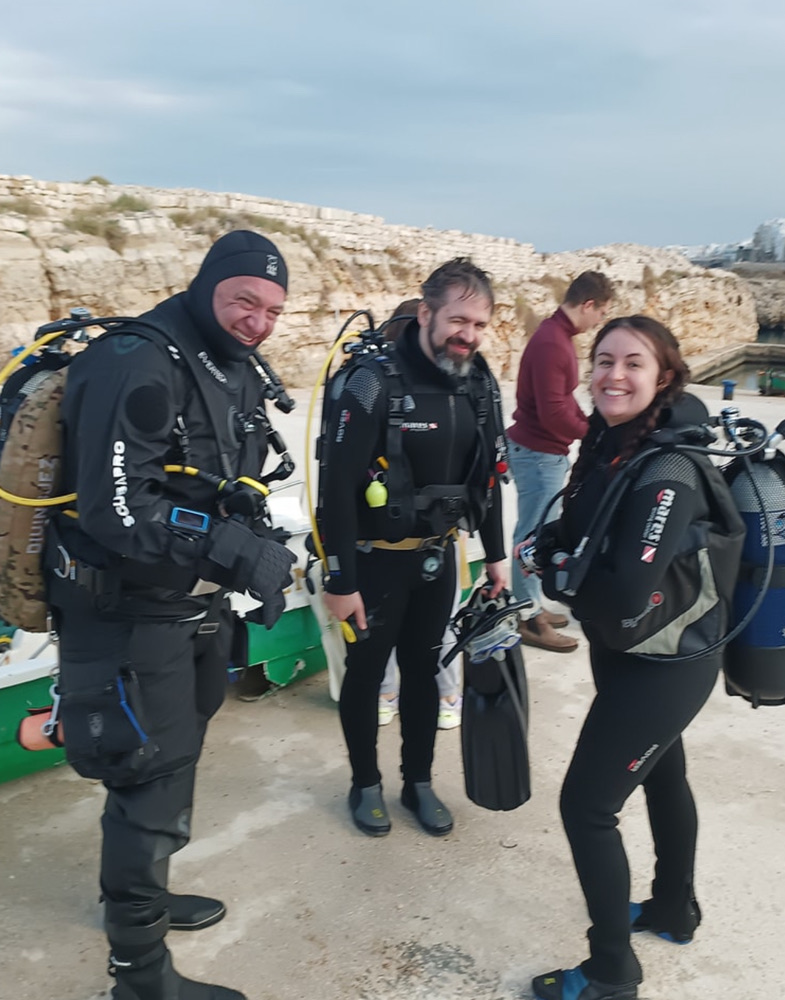
Course Example: PADI Open Water Course
The PADI Open Water Diver course is the most popular scuba diving certification course in the world.
It is a comprehensive course that teaches the skills and knowledge needed to safely dive in open water environments. The course is designed for people who are new to scuba diving and want to learn the basics of diving, as well as for those who want to refresh their skills and knowledge.
The PADI Open Water Diver course is divided into three main parts: knowledge development, confined water dives, and open water dives.
Knowledge Development
The knowledge development part of the course is usually done through a combination of independent study, such as reading the PADI Open Water Diver manual, and classroom sessions with an instructor. The topics covered in the knowledge development part of the course include dive theory, dive equipment, dive planning, and dive safety.
Confined Water Dives
The confined water dives are the pool or pool-like sessions where you will learn the basic skills of diving such as clearing the water from the mask, regulator recovery, and control of buoyancy.
Open Water Dives
The open water dives are where you will put the skills you learned in the confined water dives into practice.
You will usually complete four open water dives, which will take place in a natural body of water such as a lake or ocean. During these dives, you will explore the underwater environment and practice the skills you learned in the confined water dives.
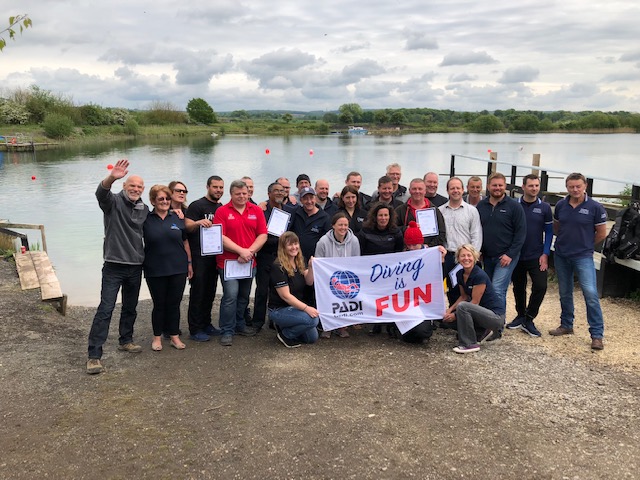
Great Way to Learn the Basics and Get Certified
The PADI Open Water Diver course is a great way to learn the basics of scuba diving and to gain the skills and knowledge needed to safely dive in open water environments.
Upon successful completion of the course, you will be certified as a PADI Open Water Diver and will be able to dive to a maximum depth of 60 feet.
The certification is recognized worldwide and you can continue your diving education with PADI by taking the advanced open water course and other specialties.
Overall, the PADI Open Water Diver course is a great way to get started in the exciting world of scuba diving. With proper training, you can safely explore the underwater world and experience the beauty and diversity of marine life.
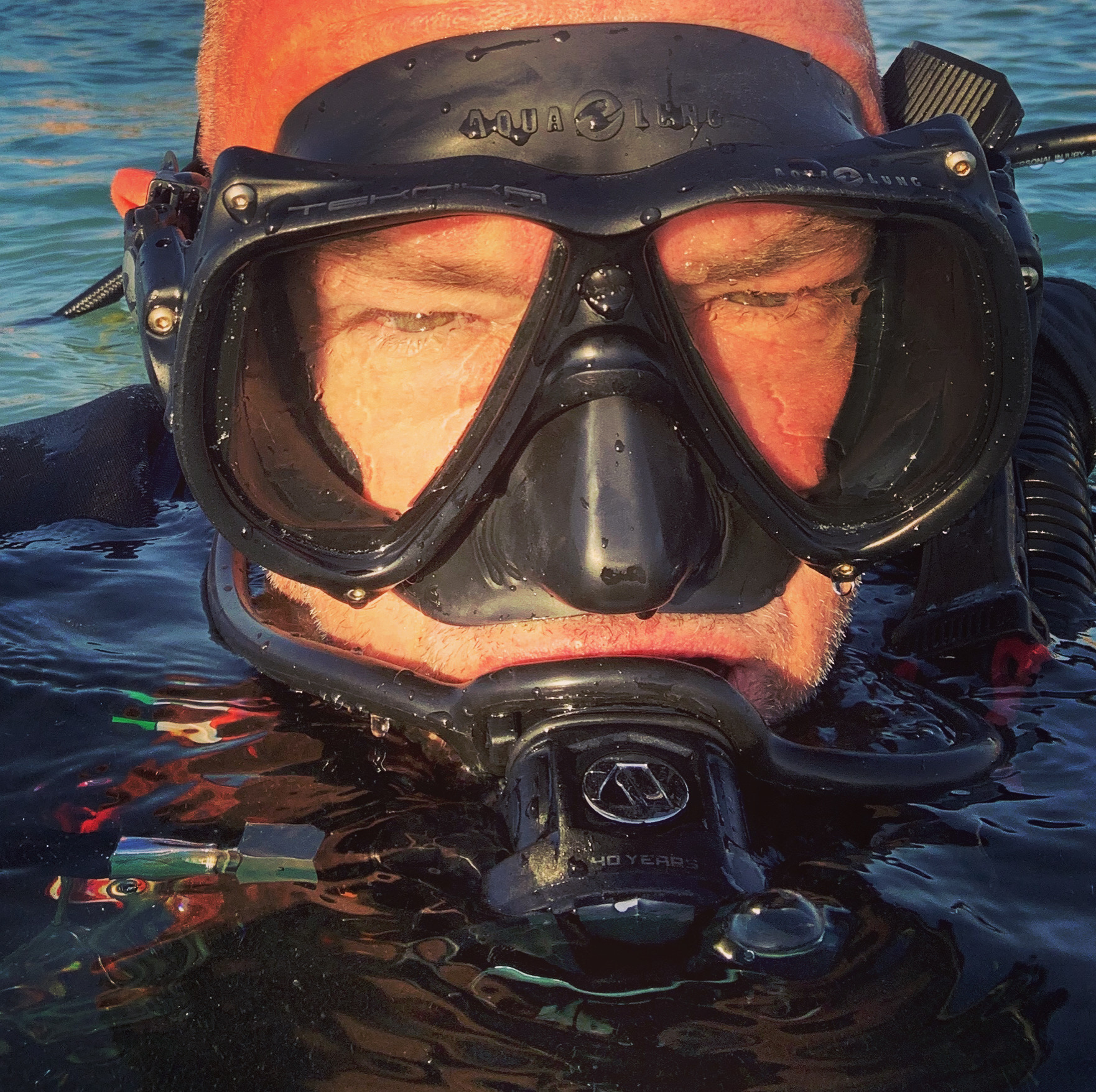
If you would like more information or discuss a course in more detail, contact My Sea to Sky. Our experienced diving team can talk you through all the aspects of the PADI and SSI courses we run on a regular basis.
Or, why not combine your diving training with a holiday in some amazing locations that are suited to your level of experience? Just ask, we are only too happy to recommend the perfect diving location for you.
We are a full service tour operator offering nature immersive and wellness experiences tailored to our discerning adventurers, looking for active escapes to undiscovered gems.
Blogs
Jeff Goodman Launches Underwater Moviemaker Course with NovoScuba

Transform Your Dive Experiences into Cinematic Masterpieces
NovoScuba has partnered with acclaimed underwater filmmaker Jeff Goodman to introduce the Underwater Moviemaker Course—a revolutionary program designed to equip divers with the skills to capture the breathtaking beauty of the underwater world.
Whether you’re an aspiring filmmaker, an avid diver, or a photography enthusiast, this course offers the tools and expertise needed to create stunning underwater videos. From vibrant coral reefs to curious marine life, you’ll learn how to film, edit, and produce captivating underwater stories, all with expert guidance from a seasoned professional.
Jeff Goodman: A Legacy in Underwater Filmmaking
Jeff Goodman brings over 40 years of experience in underwater film production for television to this course. Reflecting on his career, Jeff said:
“Although technology has dramatically changed, the basics of underwater filming remain constant. This course covers crucial skills for producing great videos. Whether you’re creating professional broadcast films or high-quality hobby videos, the fundamental principles are the same.
A camera operator must master their equipment to capture those magical underwater moments effortlessly. But beyond technical know-how, underwater filmmaking is about having fun and enhancing your diving experiences. So, take your time, learn at your own pace, and enjoy this creative journey.”
About NovoScuba
Founded in 2023, NovoScuba is reshaping dive education with a comprehensive, digitally native platform. Offering cutting-edge training programs for divers at all levels, NovoScuba sets a new benchmark in the diving industry by combining innovation with accessibility.
With ISO-certified courses, a student subscription model, and multilingual support, NovoScuba ensures that dive education is inclusive and engaging. More than just a training provider, NovoScuba fosters a global community of divers committed to exploration, collaboration, and sustainability.
Join the NovoScuba Underwater Moviemaker Course Today!
Dive into the world of underwater filmmaking and start creating cinematic stories that inspire. Learn more about the course and enroll today at www.novoscuba.com/novoscuba-underwater-moviemaker-course.
EXCLUSIVE: Jeff Goodman interviews Mark Spiers, CEO of New Scuba Diving Training Agency NovoScuba
NovoScuba’s Game-Changing Approach for Dive Store Owners: WE PAY YOU!
The diving world thrives on passion and adventure, but for many dive store owners, the financial and operational challenges can be as deep as the ocean.
NovoScuba, an emerging force in the diving world, is on a mission to transform this landscape for the better. With a revolutionary approach to dive store and training agency partnerships, NovoScuba is setting new standards for how dive stores can thrive while keeping their focus on delivering exceptional diving experiences.

A New Paradigm: NovoScuba’s Bold Mission
NovoScuba’s mission is straightforward yet profound: to disrupt the traditional dynamics between dive store owners and training agencies. Traditionally, dive stores have been subjected to substantial fees charged by training agencies, for membership, materials and certifications. These costs have often placed a heavy financial burden on store owners, cutting into their profits and limiting their ability to offer competitive prices to customers.
NovoScuba flips the script by offering a model where dive stores earn money, instead of paying high fees. Dive stores receive commissions for every student they register, and their certification costs are covered. This new model not only boosts profitability but also ensures clients get top-quality training at unbeatable prices.
Financial Upsides: Earn From Student Registration
NovoScuba’s approach is simple yet revolutionary. Dive stores partnering with NovoScuba can earn commissions for every student they enroll.
Here’s how it works: For every student enrolled through NovoScuba, dive stores receive a commission. Each student enrolled will receive their e-learning materials and certification credit included in their subscription. This arrangement is a significant departure from the traditional model, where dive stores often struggle to manage high overhead costs related to training fees and certification expenses.

NovoScuba’s approach ensures that dive stores can focus on what they do best—providing top-notch diving experiences—without being bogged down by excessive financial burdens, and the need to carry large stocks of materials.
Quality Training at a Great Price
NovoScuba stands out by offering high-quality, ISO certified, training that doesn’t break the bank, in fact our students will pay less than with most competing agencies. Clients benefit from top-notch education and safety standards at competitive prices. Dive store owners can confidently promote NovoScuba’s programs, knowing they’re offering fantastic training at affordable rates. This balance of quality and affordability helps dive stores build a strong reputation and attract more customers.
Your Brand is Your Business: NovoScuba’s Commitment to Showcasing Your Identity
At NovoScuba, we understand that your brand is your most valuable asset, and we’re committed to putting it front and centre. Unlike agencies that charge high fees to promote their own brand, we believe in investing in yours. With NovoScuba, you won’t be paying to advertise someone else’s logo alone, — our focus is on showcasing your unique identity. Certifications prominently feature your brand, as well as the training agency, reinforcing your store’s image and brand every step of the way. We’re here to support and elevate your brand, ensuring that your investment directly benefits your business.
Affordable Membership: An Investment in Your Success
NovoScuba’s membership model is designed with dive store owners in mind. Membership fees are kept low and include annual Pro member fees for your team. Payment can be made monthly or annually in your local currency, avoiding the hassle of exchange rate fluctuations. NovoScuba promises no exchange rate changes without a six-month notice, ensuring financial stability and simplifying budgeting. With a membership lasting 12 months from date of joining, you’ll enjoy a full year of NovoScuba’s benefits and support.

Streamlined Operations: Simplifying Your Workload
Handling administrative tasks can be a challenge, but NovoScuba makes it easier. We’ve streamlined certification procedures and reduced paperwork to help dive stores operate more efficiently. Certification processing is quick and straightforward, allowing more focus on teaching and customer service. Our system minimises bureaucracy by storing necessary forms in student profiles, reducing paperwork and administrative delays.
Crossover Made Easy
For dive stores looking to transition to NovoScuba’s model, the crossover process is designed to be smooth and hassle-free. NovoScuba provides support to ensure that the transition is as seamless as possible, helping dive store owners integrate into the new system with minimal disruption. Experienced dive Pros don’t need to undergo extensive retraining. Our crossover is designed to familiarise Pros with NovoScuba’s user-friendly platform, standards and course structures, and not to waste time and expense re-training in water.
With just a few simple steps, you’ll be ready to offer top-notch training through NovoScuba.
Comprehensive Business Support and Training Included in Your Membership
NovoScuba goes beyond financial benefits by offering experienced support and training. This value added service includes:
- Business Training: Optimise your operations with guidance on marketing, customer service, and best practices.
- Marketing and Promotion: Access resources to attract new customers and boost your store’s visibility. Enjoy cross promotions with NovoScuba to gain increased exposure.
- Ongoing Support: NovoScuba’s commitment to its partners extends beyond initial training and setup. The company offers ongoing support to address any issues or questions that arise. This continuous support ensures that dive store owners have a reliable resource to turn to whenever they need assistance.

Embracing Digital Natives: Instant Evolution and Continuous Improvement
NovoScuba’s digital-native approach is a game-changer. Leveraging cutting-edge technology, we ensure our services evolve and improve swiftly. Dive stores benefit from instant updates, the latest features, enhancements, and effective solutions, keeping them ahead of the curve. This continuous improvement helps dive stores stay competitive and deliver exceptional services. Whether it’s a new course update, additional marketing resources, or improved e-learning functions, NovoScuba’s digital infrastructure ensures that dive stores are always equipped with the most current and effective solutions. This continuous evolution not only helps dive stores stay ahead in a competitive market but also ensures they consistently provide top-quality services to their clients.
Why Is NovoScuba Doing This? – Fair Profit Sharing for Greater Access and Growth
At NovoScuba, we’ve taken a bold step by paying commissions to stores rather than following the traditional model of training agencies charging high fees. Our mission is to make diving accessible to everyone and to foster a growing community of new divers and continued education. By redistributing profits more equitably between stores and training agencies, we aim to create a more supportive and collaborative environment within the industry. We believe this approach not only helps individual stores thrive but also stimulates overall growth and innovation in diving. Our commitment to fair profit sharing reflects our dedication to the long-term health and expansion of the diving community.

Everyone is getting a piece of the pie.
Getting Started: Join the NovoScuba Revolution
Ready to revolutionise your dive store experience? NovoScuba is here to support your journey toward reduced costs, increased profitability, and enhanced operational efficiency. Get in touch with our team to learn how NovoScuba can transform your business.
For more information, email info@novoscuba.com or visit www.novoscuba.academy.
Blogs
Experience World-Class Diving and Luxury at its Finest with Lumbalumba Resort

Lumbalumba Resort – Manado is an intimate dive and snorkel retreat nestled in Manado, North Sulawesi, Indonesia—a hidden gem within the world-renowned Coral Triangle, home to the planet’s highest marine biodiversity.

Email: info@lumbalumbaresort.com / Call: +62 (0) 812 430 2974 / Web: www.lumbalumbaresort.com
With only six luxurious chalets (just nine rooms), we provide a cozy, flexible atmosphere where every guest receives the genuine, personal attention they are looking for.

Email: info@lumbalumbaresort.com / Call: +62 (0) 812 430 2974 / Web: www.lumbalumbaresort.com
Our philosophy is simple: we can only succeed when you’re truly satisfied. Choosing to stay small allows us to deliver the extra-special, personalized service you seek, making your experience here genuinely unforgettable.
For us, you’re not just another tourist.
For you, we’re not just another dive resort.

Email: info@lumbalumbaresort.com / Call: +62 (0) 812 430 2974 / Web: www.lumbalumbaresort.com
Rustique situated in our lush bontanical gardens are 3 different types of accommodation, including a family Chalet.

Email: info@lumbalumbaresort.com / Call: +62 (0) 812 430 2974 / Web: www.lumbalumbaresort.com
Enjoy a relaxing dip in our infinity pool, unwind at the bar, and savor mouthwatering dishes from our renowned kitchen—each meal crafted to delight your taste buds in every bite.

Email: info@lumbalumbaresort.com / Call: +62 (0) 812 430 2974 / Web: www.lumbalumbaresort.com
Lumbalumba Resort has two different kinds of boat; our inboard powered, custom-made catamaran, Diver III, and Diver IV, our fast outboard-powered dive boat.

Email: info@lumbalumbaresort.com / Call: +62 (0) 812 430 2974 / Web: www.lumbalumbaresort.com
Both are very comfortable with lots of space to relax from, to and in between dives.

Email: info@lumbalumbaresort.com / Call: +62 (0) 812 430 2974 / Web: www.lumbalumbaresort.com
Experience stunning visibility and vibrant coral reefs teeming with schooling fish. Bunaken is also a haven for marine life, boasting a thriving population of Hawksbill and Green Sea Turtles. It’s not uncommon to encounter 15 to 20 turtles on a single dive or snorkeling trip!

Email: info@lumbalumbaresort.com / Call: +62 (0) 812 430 2974 / Web: www.lumbalumbaresort.com
But it’s not just about the big sights and wide-angle views. Close to the resort, you’ll find numerous muck and macro dive sites, reminiscent of the famous Lembeh Strait. And let’s not forget the gem of Lumbalumba—the spectacular House Reef, perfect for exploring at your own pace.

Email: info@lumbalumbaresort.com / Call: +62 (0) 812 430 2974 / Web: www.lumbalumbaresort.com
Read what what our guests think about us at
Tripadvisor

Email: info@lumbalumbaresort.com / Call: +62 (0) 812 430 2974 / Web: www.lumbalumbaresort.com
And read what our guests think of us at
SCUBAVERSE

Email: info@lumbalumbaresort.com / Call: +62 (0) 812 430 2974 / Web: www.lumbalumbaresort.com
Beyond diving and snorkeling, there’s is much to explore on land as well!
Discover the Tangkoko Jungle, home to fascinating wildlife like the rare Black Macaque, vibrant Hornbill birds, and the world’s smallest primate, the enchanting Tarsius Monkey.

Email: info@lumbalumbaresort.com / Call: +62 (0) 812 430 2974 / Web: www.lumbalumbaresort.com
Take a day trip to the Minahasa Highlands to witness active volcanoes, soothing hot springs, bustling local markets, intricate handicrafts, and breathtaking landscapes.

Email: info@lumbalumbaresort.com / Call: +62 (0) 812 430 2974 / Web: www.lumbalumbaresort.com
And for thrill-seekers, we offer exciting options like white-water rafting, perfect for those craving an extra dose of adventure!

Email: info@lumbalumbaresort.com / Call: +62 (0) 812 430 2974 / Web: www.lumbalumbaresort.com
We hope this newsletter has provided you with a glimpse into what we have to offer. However, it’s just the beginning—there’s so much more waiting for you!
We offer an incredible combination trip with
Black Sand Dive Retreat in Lembeh
We also offer our
Uncover North Sulawsi program with Pulisan Beach Resort

Email: info@lumbalumbaresort.com / Call: +62 (0) 812 430 2974 / Web: www.lumbalumbaresort.com
GETTING HERE
The easiest way to reach Manado is by flying with Singapore Airlines via Singapore. There are four direct flights each week, taking just three hours to get to Manado, with departures on Monday, Wednesday, Friday, and Saturday.
BOOK NOW!
Email: info@lumbalumbaresort.com
Call: +62 (0) 812 430 2974
Web: www.lumbalumbaresort.com
Facebook: www.facebook.com/lumbalumba.resort.manado
Instagram: www.instagram.com/lumbalumba.resort.manado/
Stay safe and healthy and we look forward to meet you in Manado soon!
Best wishes,
Juud, Roel and the whole Lumbalumba Team
-

 News2 months ago
News2 months agoIconic SS United States to become the World’s Largest Artificial Reef
-

 News3 months ago
News3 months agoBook Review – 52 Assignments: Underwater Photography
-

 Gear News3 months ago
Gear News3 months agoDYNAMICNORD – New German diving brand enters the British market
-

 News3 months ago
News3 months agoExploring Cenote El Pit: A Diver’s Dream
-

 Gear News3 months ago
Gear News3 months agoTry BARE drysuits (and maybe even win one!) this Friday with Sea & Sea at North West Dive Fest
-

 Marine Life & Conservation3 months ago
Marine Life & Conservation3 months agoBook Review: Coral Triangle Cameos
-

 Blogs2 months ago
Blogs2 months agoDive the Egyptian Red Sea this Autumn with Regaldive
-

 News3 months ago
News3 months ago2024 Ocean Art Underwater Photo Competition Announced















